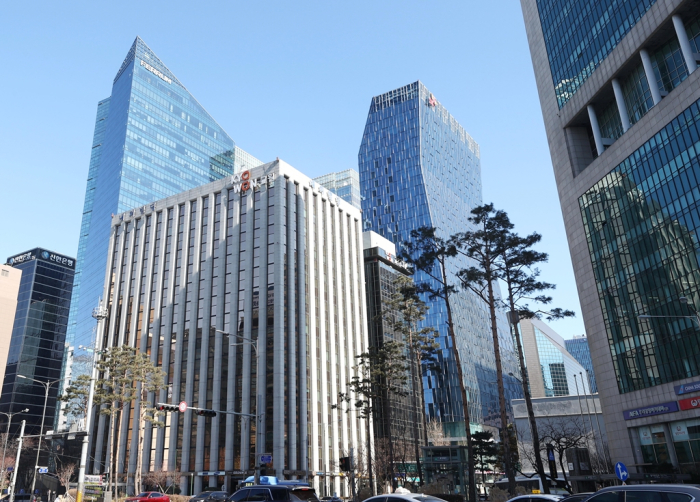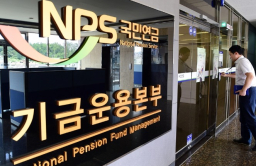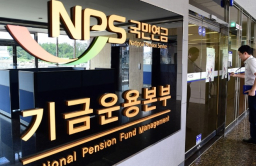-
KOSPI 2577.27 -2.21 -0.09%
-
KOSDAQ 722.52 -7.07 -0.97%
-
KOSPI200 341.49 +0.02 +0.01%
-
USD/KRW 1396 -2.00 0.14%
Korean financial firms face growing risks in overseas property investments
Alternative investments
Korean financial firms face growing risks in overseas property investments
The FSS plans to beef up its monitoring of overseas alternative investments to ensure adequate risk management
By
Apr 04, 2025 (Gmt+09:00)
3
Min read
News+

South Korea’s financial institutions are increasingly at risk of their overseas real estate investments turning sour, government data showed on Friday.
According to the Financial Supervisory Service (FSS), the balance of Korean financial firms’ overseas alternative investments stood at 55.8 trillion won ($38.8 billion) at the end of September 2024, of which 2.64 trillion won worth of property investments faced potential losses.
The FSS data showed that of 34.3 trillion won invested in individual properties, 2.64 trillion won worth of investments had events of default (EOD). The size of EOD-affected assets rose by 40 billion won in the third quarter from the previous quarter.
An EOD is a specified condition in a contract that allows the non-defaulting party to terminate the agreement. It can also allow the lender to demand immediate repayment of a debt.
Financial firms’ overseas property investment balance of 55.8 trillion won at the end of September – amounting to 0.8% of the financial sector’s total assets of 7,182.7 trillion won – was a decrease of 500 billion won from the previous quarter.

INSURANCE FIRMS HOLD THE LION’S SHARE
By industry, insurance companies accounted for the largest share with 30.4 trillion won, or 54.3% of the balance, followed by banks at 12 trillion won, or 21.5%; securities firms at 7.7 trillion won, or 13.8%; mutual finance institutions at 3.6 trillion won, or 6.5%; credit finance companies at 2 trillion won, or 3.6%; and savings banks at 1 trillion won, or 0.2%.
By region, North America represented the largest portion of investments, at 34.1 trillion won, or 61.1%, followed by Europe at 10.8 trillion won, or 19.4%; Asia at 3.8 trillion won, or 6.8%; and other or multi-region investments totaling 7.1 trillion won, or 12.7%.
Despite the loosening of monetary policy in many countries in the past couple of years, global economic uncertainties ahead of the US presidential election delayed recovery in overseas real estate markets, the FSS said.

“The office sector, in particular, remains under pressure due to structural factors such as the expansion of flexible working arrangements, with vacancy rates staying at elevated levels,” the regulator said.
As of the end of September, the office sector’s vacancy rate stood at 20.1%, higher than that of industrial facilities at 6.7% and apartment complexes at 5.8%.
REGULATOR TO BEEF UP MONITORING
Nevertheless, the FSS said that domestic financial institutions’ exposure to distressed overseas real estate assets is relatively small and their loss-absorbing capacity is sufficient, reducing the likelihood of systemic risk.
Looking ahead, the financial watchdog said it plans to swiftly finalize regulatory reforms related to financial firms’ overseas alternative investments while strengthening supervision to ensure adequate risk management.

The FSS said it also intends to closely monitor high-exposure and high-loss projects to circumvent potential financial instability.
Meanwhile, the National Pension Service (NPS), Korea’s state-run pension fund and the country’s largest institutional investor, said last month that it plans to introduce a new benchmark portfolio framework to improve gains from its alternative investments.
Last December, sources said the NPS plans to invest 2 trillion won in the domestic real estate market in 2025 – its largest annual investment ever – to take advantage of an expected recovery in the commercial property sector amid low-interest borrowing costs.
Write to Seok-Cheol Choi at dolsoi@hankyung.com
In-Soo Nam edited this article.
More To Read
-
Mar 16, 2025 (Gmt+09:00)
-
Mar 12, 2025 (Gmt+09:00)
-
Dec 18, 2024 (Gmt+09:00)
-
 Alternative investmentsS.Korean investors name their 42 favorite alternative asset managers
Alternative investmentsS.Korean investors name their 42 favorite alternative asset managersFeb 08, 2024 (Gmt+09:00)





